These two powerhouse breeds guard with very different styles, and their personalities can be larger than life.
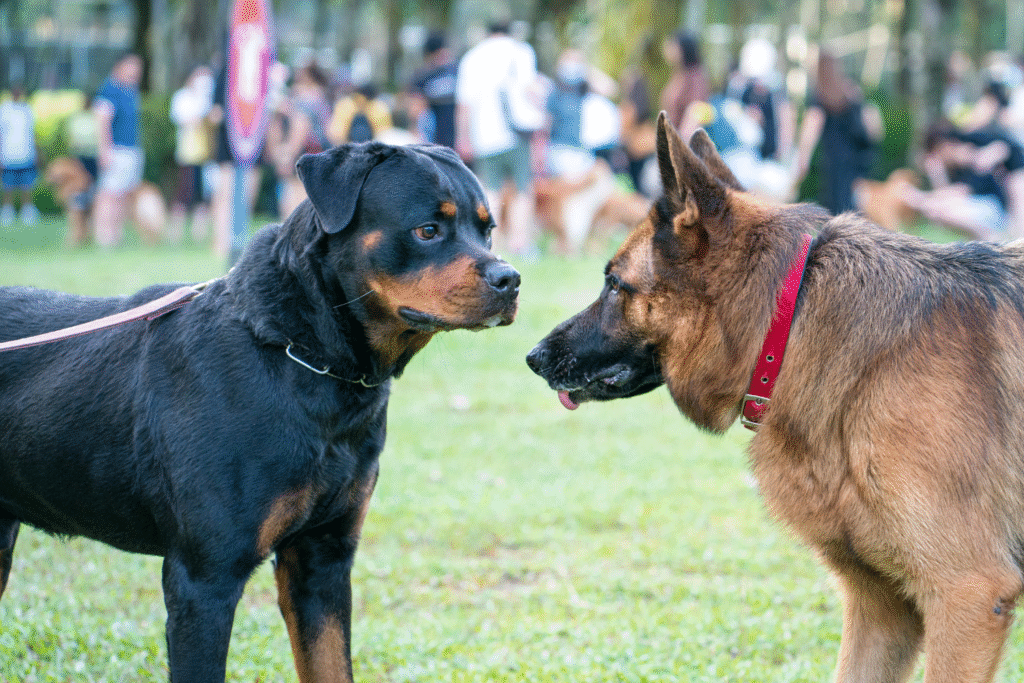
Guard dogs are never just about muscle. They carry with them loyalty, smarts, and sometimes more theatrics than a Shakespeare play. The Rottweiler and the German Shepherd stand as two of the most iconic breeds in this role, both feared by intruders and adored by families. Yet when it comes to deciding who truly reigns as the ultimate drama king of guarding, the differences run deeper than most expect.
Their reputations stretch from Hollywood screens to suburban backyards, but in everyday life they carry quirks that matter more than legends. These are the stories, traits, and truths that shape how each one brings both security and spectacle into a household.
1. The Rottweiler’s presence fills a room before he even moves.

A Rottweiler doesn’t have to bark to make people hesitate. Broad shoulders, a square head, and a steady stare already deliver a warning that no words could replace. According to the American Kennel Club, this breed was once a Roman drover, driving cattle and protecting stock, and that heritage still bleeds through in their stance. Their very existence says, “think twice.”
Yet behind closed doors, owners often laugh at the drama. These dogs know how to lean their entire weight against you like they own the couch. The contrast between the intimidation they project and the affection they demand makes them unforgettable. That balance between steel on the outside and softness on the inside is what sets the stage for their theatrics.
2. German Shepherds seem to live with a constant spotlight on them.

Every move a German Shepherd makes feels intentional, like a performance. They pace, posture, and command attention even when no one is watching. Training experts emphasize their intelligence and high responsiveness, traits that make them stars in police and military work. Their alert ears and restless pacing only amplify the show, as reported by the American Kennel Club.
But it’s not just seriousness—they thrive on drama. A Shepherd will whine theatrically if you leave the room too long, then transform into a soldier when a stranger walks past the gate. That duality of neediness and dominance defines their reputation. It’s not just guarding—it’s an entire performance of loyalty, energy, and demand for recognition.
3. A Rottweiler’s silence is louder than a Shepherd’s voice.

The German Shepherd often barks, growls, and makes noise to declare territory, while the Rottweiler leans on silence. As discovered by canine behavior researchers, Rottweilers are known for watching in stillness, making their presence a more unnerving warning than loud alarms. Their drama lies in restraint, holding back until the moment it matters.
That quiet confidence often unnerves strangers more than shouting ever could. Owners describe them as dogs that choose when to unleash their voice, saving it for the exact moment it carries the most power. In a world where volume often dominates, their ability to stay calm while hinting at power feels like a different kind of theatrics.
4. Shepherds bring constant energy that borders on obsession.
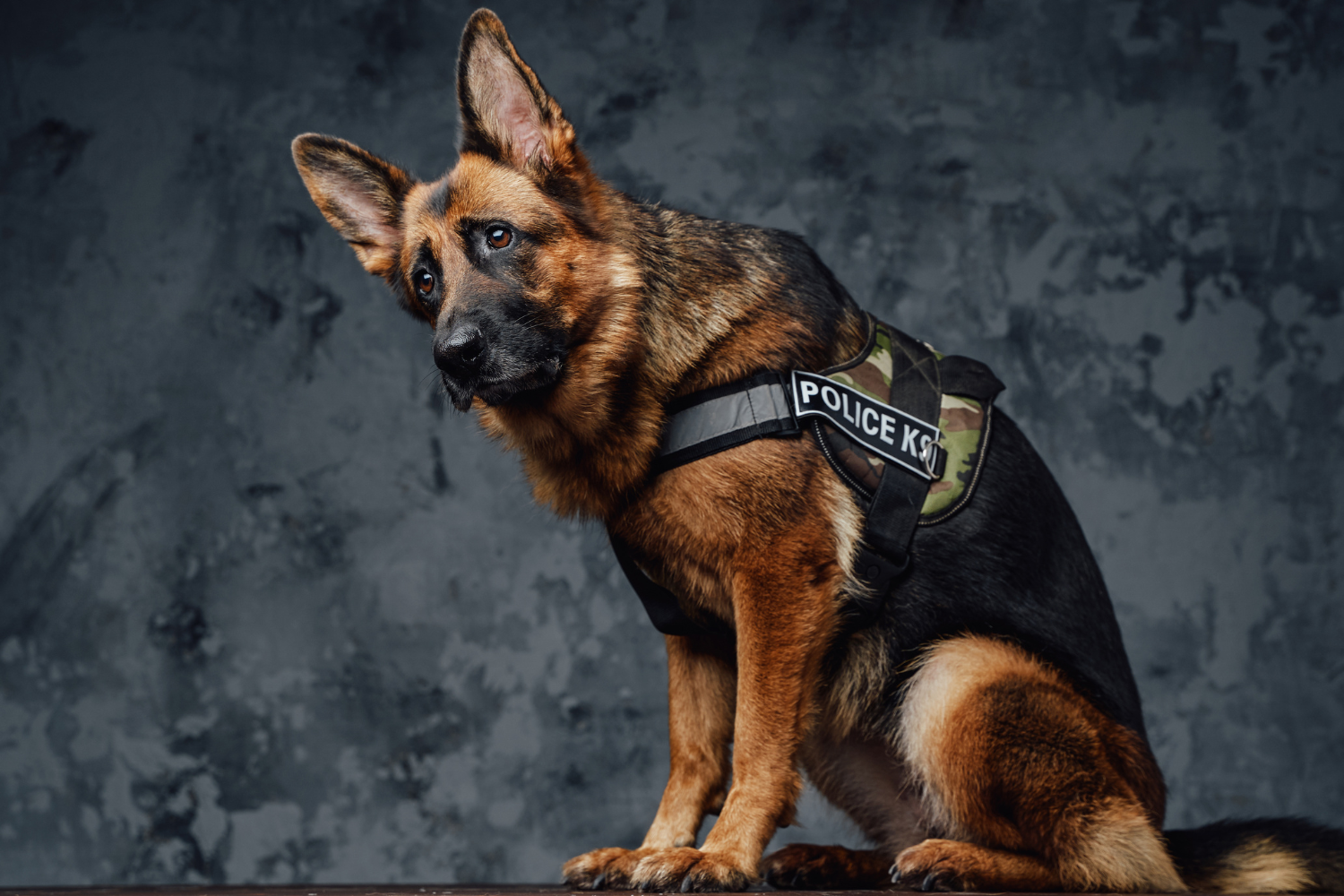
German Shepherds rarely let their guard down. Even at home, they seem to patrol, checking doors, windows, and the yard as though they’ve been hired full-time. This relentless activity can feel exhausting, but it also means no one is slipping past unnoticed. Their drama is born from sheer motion—always moving, always on alert.
This hypervigilance keeps them top of their class for security work but can make home life intense. Families often joke about their Shepherds acting like unpaid security guards, logging hours no one asked them to. Still, that energy translates into protection few breeds can match.
5. A Rottweiler insists on proving loyalty through physical closeness.
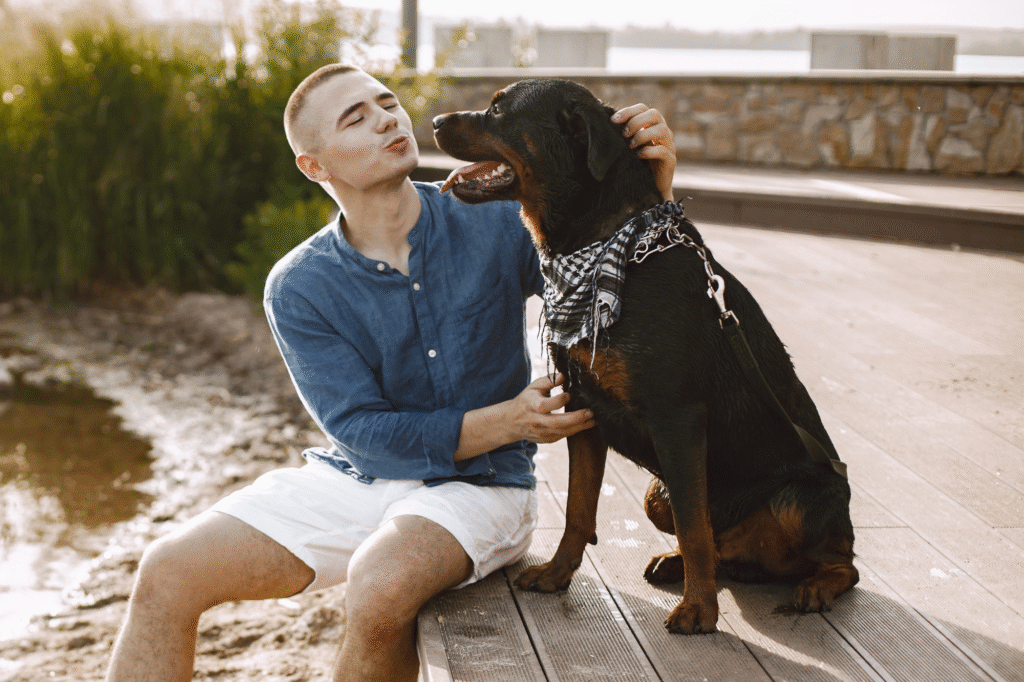
Unlike the constant pacing of a Shepherd, a Rottweiler prefers to demonstrate devotion by staying pressed against you. They want a physical claim, sitting on your feet or leaning against your leg while watching the world. This closeness becomes part of their guard style—the message is clear that no one gets near you without passing their shadow.
Theatrics emerge in how they combine intimidation with cuddling. Families often laugh at how a Rottweiler that terrifies strangers can simultaneously act like an oversized lapdog indoors. That dual role is its own kind of performance, a reminder that loyalty sometimes plays out in the most unexpected stage directions.
6. Shepherds tend to dramatize separation like seasoned actors.
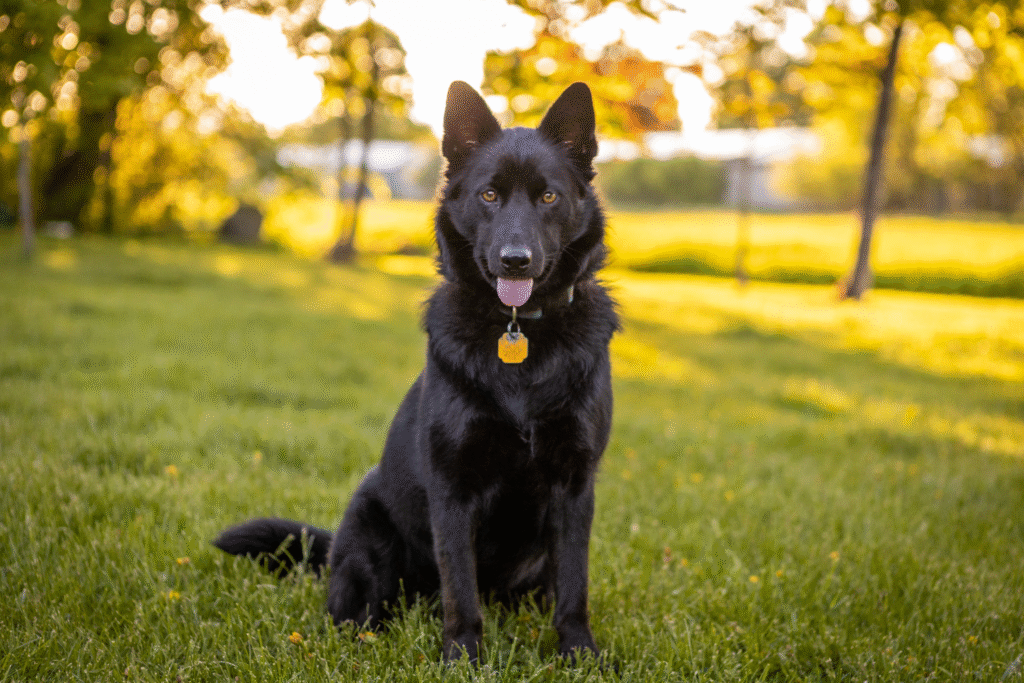
German Shepherds don’t just miss their people; they make an entire show out of it. Whines, pacing, and dramatic sighs pour out of them when they feel ignored. Their emotional guard style stretches beyond protecting a home—it’s also about clinging to their person with unmatched intensity.
That drama has a cost. Without enough attention, Shepherds can become destructive, turning their restless energy into torn furniture or shredded shoes. Their guarding instinct mixes with emotional need, creating a package that demands presence. It’s a constant reminder that their protective drive comes tied with high expectations.
7. Rottweilers set their own tempo and stick with it.
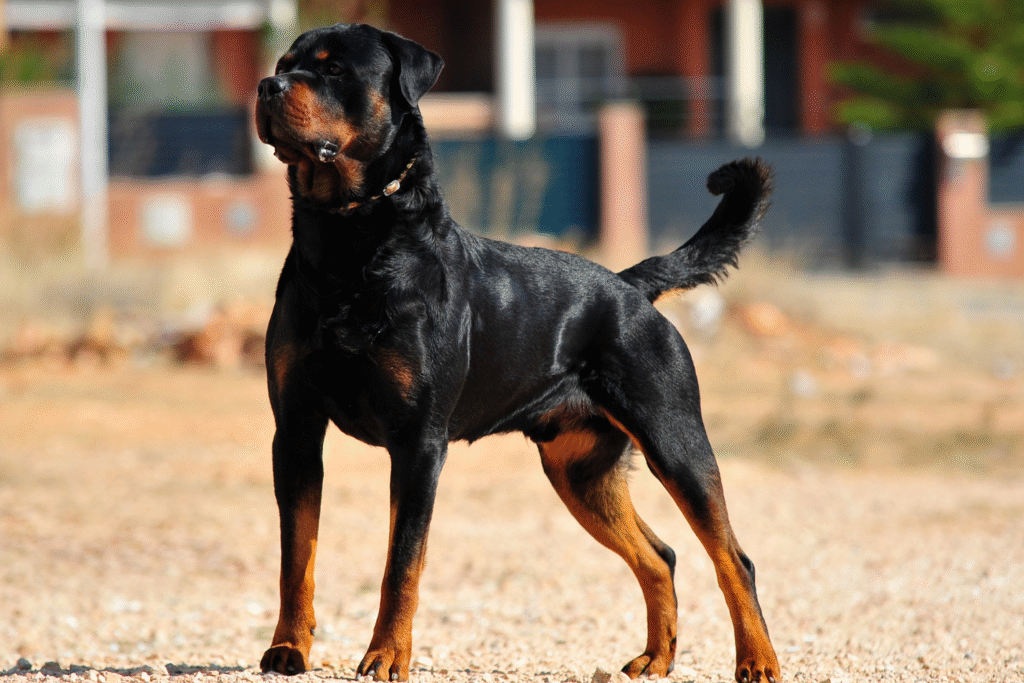
While Shepherds thrive on constant action, Rottweilers lean into patience. They don’t feel the need to respond to every single movement or sound. Instead, they build tension with steady stares and deliberate steps. Their rhythm is slow, purposeful, and heavy with intention.
This makes their guarding style less about overreaction and more about decisive strikes when needed. Families describe them as calm until provoked, like performers who know the value of pausing before delivering their line. That pacing, sometimes mistaken for laziness, is really a dramatic choice rooted in confidence.
8. In the end, each breed turns security into theater in its own way.
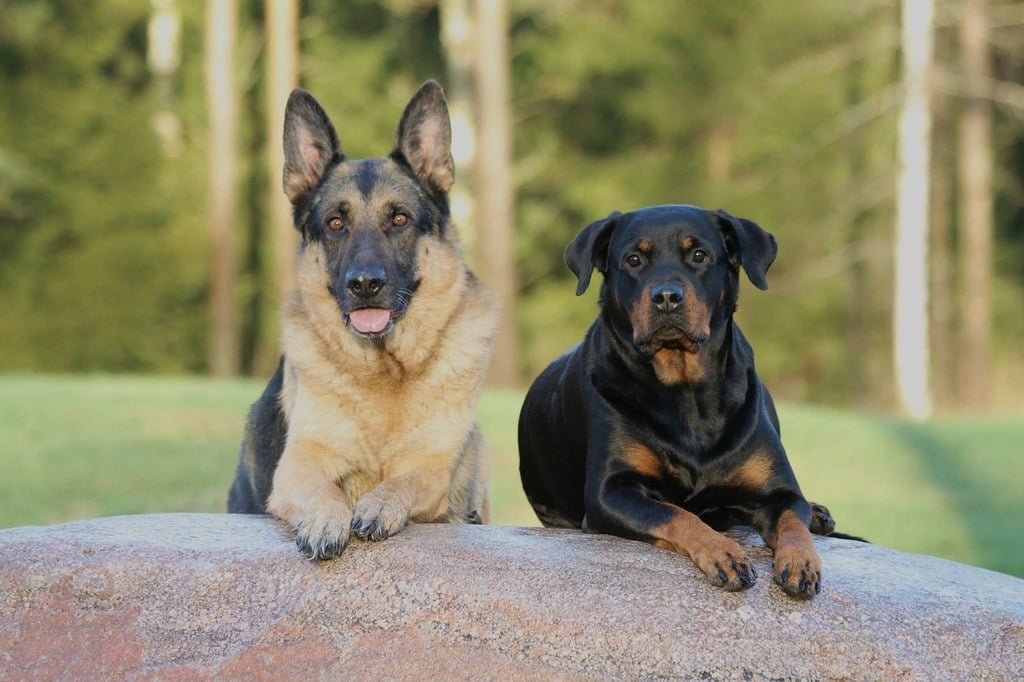
Both Rottweilers and German Shepherds bring drama to their roles, but it plays out differently. One is a brooding presence, leaning on silence and steady confidence. The other thrives on energy, motion, and emotional expression that fills every room. Together, they represent two extremes of the same story—guardianship wrapped in spectacle.
The choice between them isn’t about who guards better but about what kind of performance you want in your home. Each dog turns protection into a script, and whichever you choose, the drama will be as unforgettable as the loyalty behind it.
